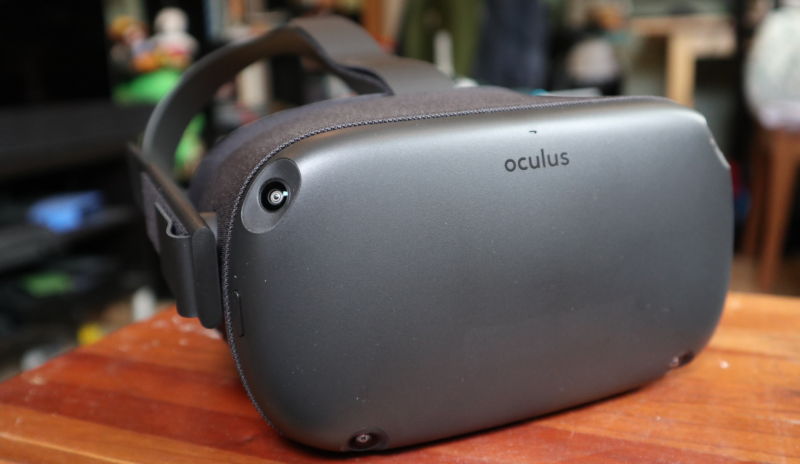
The original Oculus Quest will stop receiving new feature updates and lose access to the company’s existing social VR features, according to an email sent to many Quest users this week.
While Quest headset owners will still be able to use the device and all available apps, they will no longer be able to “create or join a party,” according to the email. Access to Meta’s Horizon Home features will also be cut off on March 5, the company wrote. And while Meta will no longer be “delivering new features” to Quest 1 users, the company says it will continue to provide “critical bug fixes and security patches until 2024.”
The announcement comes less than four years after the Quest’s initial launch as Meta’s (then Oculus’) first wireless headset with full six-degree-of-freedom head- and hand-tracking. That initial version of the Quest, which launched at $400, was succeeded by the $300 Quest 2 in late 2020.
The Quest 2 reportedly sold tens of millions of units despite a $100 price increase last year. That relative sales success has meant many VR developers are increasingly targeting their games at the Quest 2’s Qualcomm Snapdragon XR2 chipset and not the original Quest’s weaker Snapdragon 835. Meta’s announcement won’t affect support for the Quest 2 at this point, nor for the recently released $1,500 Quest Pro.
The original Quest sunset announcement comes less than a month after former Meta CTO John Carmack announced his departure from the company, which he said was “operating at half the effectiveness that would make me happy.” Carmack was a major proponent of the original Quest within Meta and a booster of its untethered predecessor, the Oculus Go, which he unlocked via a post-discontinuation update in 2021.
In an October keynote speech, Carmack warned that developers shouldn’t design high-end apps for the Quest Pro before “crunching it down” for the less powerful Quest 2. “The low-end system is going to be where all your real customers are,” he warned.
https://arstechnica.com/?p=1909029

